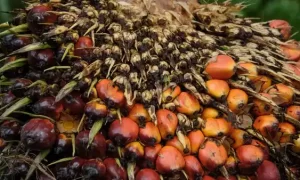Most of the world’s airlines not doing enough to switch to sustainable jet fuel, says study

A report by Transport and Environment reveals that most airlines globally are not adopting sustainable aviation fuel (SAF) at the necessary scale to meet carbon reduction targets. SAF, made from materials like wood chips and used cooking oil, accounts for just 1% of aviation fuel use. Despite efforts by airlines like Air France-KLM and United Airlines, 87% of airlines are not making significant progress. The high cost of SAF, 2-5 times more than traditional jet fuel, and insufficient investment by oil companies in SAF production are major barriers to scaling up its use.
Most airlines around the world are not doing enough to adopt sustainable aviation fuel (SAF), according to a report by the advocacy group Transport and Environment, reported Reuters.
The report also highlights that oil producers are not investing sufficiently in SAF production, slowing down the transition to greener aviation.
This biofuel, which can be produced from wood chips and used cooking oil, makes up just 1% of aviation fuel use worldwide. This level of adoption does not allow airlines to easily meet their carbon reduction targets. The high cost of SAF, ranging from two to five times the price of traditional jet fuel, also doesn’t make it easy for airlines.
Unfortunately, airlines are not on track to achieve meaningful emissions reductions because they are not purchasing enough sustainable aviation fuel,” said Francesco Catte, aviation policy manager at Transport and Environment.
According to the report, although some airlines, such as Air France-KLM, United Airlines, and Norwegian, have managed to buy SAF, 87% of airlines are not making a significant effort. Even the leaders risk missing their targets without increased investment.
The report singled out airlines like ITA Airways in Italy and Portugal’s TAP for their lack of substantial progress. A spokesperson for TAP defended the airline’s efforts, pointing out that it was the first to fly using SAF in Portugal in July 2022 and is committed to using 10% SAF by 2030. ITA Airways did not respond to inquiries.
The study also criticized major oil companies for not investing in SAF production facilities, despite having the resources to do so. Greater investment from both airlines and oil producers is seen as essential to scaling up SAF use and reducing aviation’s environmental impact.
Source : Bio Energy Times

















